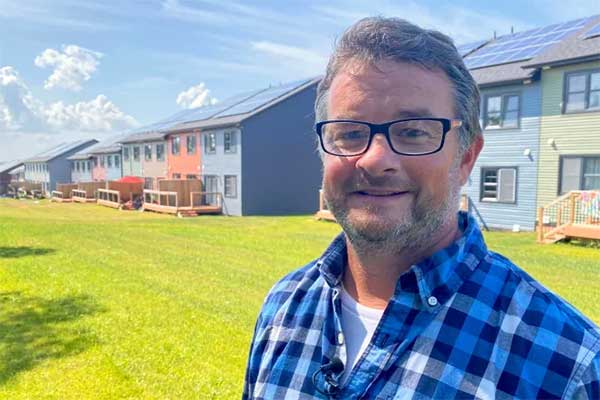- A rapid rise in solar installations across PEI on account of jointly-funded incentives has highlighted the surging demand for renewable energy.
- Individuals and businesses alike are demanding economically feasible ways to help electrify Canada's energy grids, cut emissions, and make the country energy independent.
- However, as of right now, current expenditure is not meeting the surging 'green' demand.
Two new solar programs in PEI — one aimed at agriculture and one at homeowners — have seen tremendous support from the community, highlighting the general popularity of renewable energy initiatives on the Island.
As a part of the federal government’s commitment to cutting carbon emissions, $6 million was awarded to the PEI Federation of Agriculture. The organization is now doling the funds for various reasons, including solar adoption, advanced nitrogen management, winter crop coverings, and sustainable grazing techniques.
One of the first farms to apply for funding requested capital for solar-powered cattle fencing and portable power pumps. In a concerted effort to protect the soil’s integrity for future yields, no-till farming equipment was also included in the request.
About a dozen other agricultural applications have been made since the program opened, according to Donald Killorn, Executive Director of the PEI Federation of Agriculture. Most projects are expected to cost between $5,000 and $20,000, with some exceptions ranging upwards of $45,000.
The selection committee responsible for the project approvals is set to meet monthly and will take applications on a rolling basis, meaning there’s no hard deadline.
Another solar project — based out of Stratford PEI — recently ran out of money far faster than anticipated.
Funded through the Federation of Canadian Municipalities in 2021 as a part of the Switch Efficiency program, Stratford was awarded the money at the same time as Charlottetown. While the latter still has money available, Stratford’s coffers have been wiped clean — though to the benefit of 150 cleantech projects throughout the city, such as solar panels and improved insulation.
Stratford politicians like Councilor Derek Smith have begun lobbying on the Federation of Canadian Municipalities, alongside federal politicians, for greater funding for individualized cleantech initiatives — be them through the Switch Efficiency program or some other means. Unfortunately, nothing supplementary has been promised at this point in time.
These programs highlight the exponential growth in awareness of renewable energy technology in recent years, particularly how environmental benefits can be coupled with economic support.
Farmers, homeowners, and businesses increasingly want to switch to renewable energy, alongside adopting other ecological solutions. And not only do these projects lower energy bills, but they increase energy resilience and produce positive health externalities for surrounding communities. Governments need to recognize that the demand for environmentally friendly transformations is there — all that’s needed is government action and funding to make it possible for the everyday person.
Ultimately, solar and other renewable energy incentive programs are popular because the technology is still too expensive for most. Yet, cultural attitudes have shifted remarkably in just a few years, massively increasing the interest in ‘going green.’
High capital costs have always plagued renewable energy, but only because governments have perpetuated attitudes of austerity regarding green technology adoption. It’s time for governments alike, including PEI’s, to give the people what they want — and what the planet desperately needs: access to sustainable living.











Comments